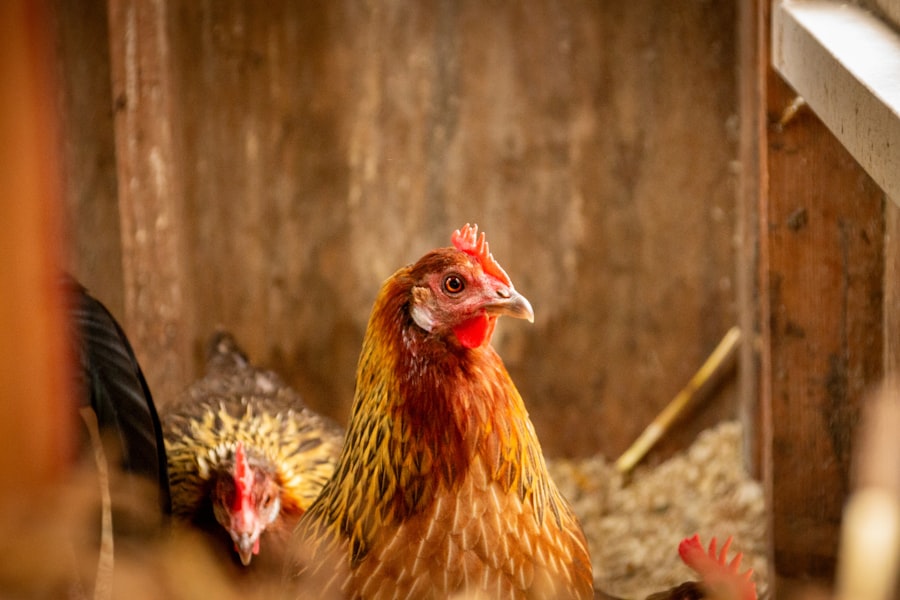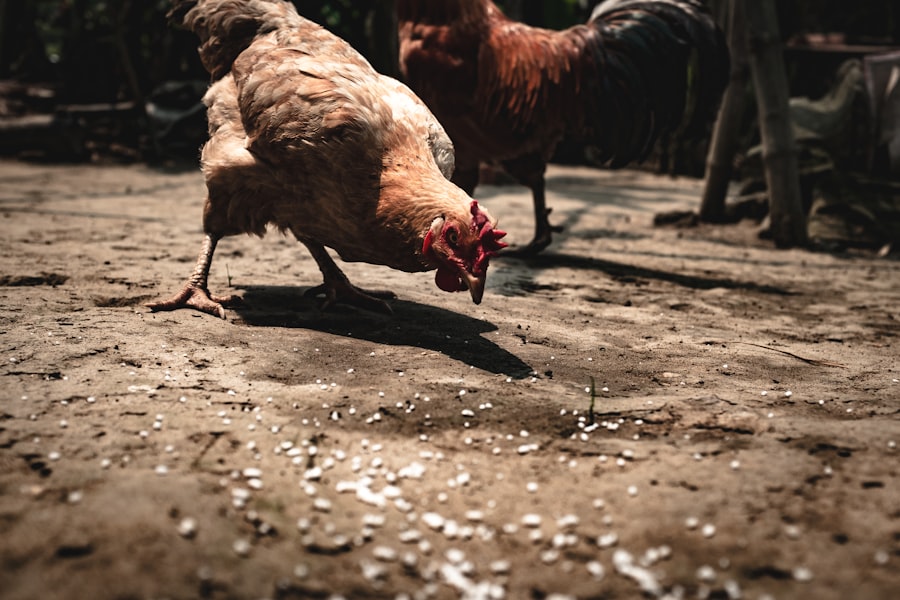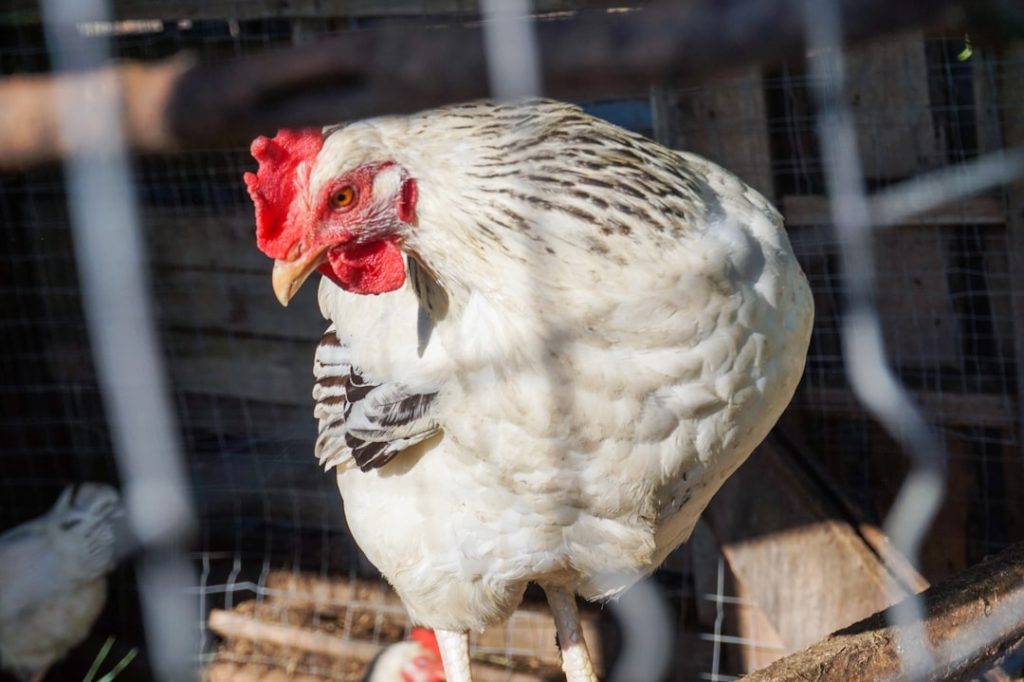Keeping chickens has gained popularity in recent years as more individuals seek sustainable living and self-sufficiency. This practice can be undertaken in both rural and urban environments, offering various benefits such as a consistent supply of fresh eggs, natural pest control, garden fertilizer, and companionship. However, prospective chicken keepers should carefully consider the initial investments, ongoing expenses, potential savings, and other factors that influence the cost-effectiveness of this endeavor.
Raising chickens can provide an educational and enjoyable experience for families. Activities like egg collection and observing chicken behavior offer unique learning opportunities. Nevertheless, it is crucial to thoroughly understand the financial implications of chicken keeping before beginning.
This article will examine the costs associated with maintaining chickens, as well as the potential economic benefits and additional advantages of this practice.
Table of Contents
- 1 Initial Costs of Keeping Chickens
- 2 Ongoing Expenses for Chicken Care
- 3 Potential Savings from Keeping Chickens
- 4 Factors Affecting the Cost Effectiveness of Keeping Chickens
- 5 Other Benefits of Keeping Chickens
- 6 Is Keeping Chickens Cost Effective?
- 7 FAQs
- 7.1 What are the initial costs of keeping chickens?
- 7.2 What are the ongoing costs of keeping chickens?
- 7.3 How much do chickens typically eat?
- 7.4 Do chickens produce enough eggs to offset their costs?
- 7.5 What are the potential cost savings of keeping chickens?
- 7.6 Are there any unexpected costs associated with keeping chickens?
Key Takeaways
- Keeping chickens can be a rewarding and cost-effective hobby for those interested in sustainable living and fresh eggs.
- Initial costs for keeping chickens include purchasing a coop, feeders, waterers, and chickens themselves, which can range from 0 to 0.
- Ongoing expenses for chicken care include feed, bedding, and healthcare, which can amount to to per month for a small flock.
- Potential savings from keeping chickens come from the production of fresh eggs, which can reduce grocery expenses and provide a source of income if selling surplus eggs.
- Factors affecting the cost effectiveness of keeping chickens include local regulations, predator control, and the time and effort required for daily care and maintenance.
- Other benefits of keeping chickens include natural pest control, fertilizer production, and the enjoyment of observing and interacting with the chickens.
- In conclusion, keeping chickens can be cost effective for those willing to invest time and effort into proper care and maintenance, and who are able to enjoy the additional benefits beyond just financial savings.
Initial Costs of Keeping Chickens
Coop Costs
First and foremost, you will need to invest in a suitable coop to provide shelter and protection for your chickens. The cost of a coop can vary widely depending on its size, materials, and features.
Equipment Expenses
Additionally, you will need to purchase feeders, waterers, nesting boxes, and other essential equipment to ensure the health and well-being of your flock. These initial expenses can add up quickly, especially if you are starting from scratch.
Chicken Costs
In addition to the physical infrastructure, you will also need to consider the cost of purchasing the chickens themselves. The price of chicks or pullets can vary depending on the breed and age of the birds. Some people choose to start with day-old chicks, while others prefer to purchase older birds that are already laying eggs. Regardless of which option you choose, there will be an upfront cost associated with acquiring your feathered friends.
Budgeting for Success
It’s important to budget for these initial expenses and plan accordingly before bringing chickens into your life.
Ongoing Expenses for Chicken Care

Once you have established your chicken coop and acquired your flock, there are ongoing expenses to consider for the care and maintenance of your chickens. One of the most significant ongoing costs is feed. Chickens require a balanced diet to stay healthy and lay eggs regularly, so it’s important to budget for high-quality feed.
Additionally, you will need to factor in the cost of bedding material for the coop, as well as regular veterinary care and parasite control to keep your chickens in optimal health. Another ongoing expense to consider is the cost of utilities. Depending on the climate in your area, you may need to provide heating or cooling for your coop to ensure that your chickens are comfortable year-round.
This can result in increased electricity costs, especially during extreme weather conditions. Additionally, if you choose to use artificial lighting to extend the laying season for your hens, there will be additional electricity expenses to consider. It’s important to factor in these ongoing costs when evaluating the financial implications of keeping chickens.
Potential Savings from Keeping Chickens
While there are certainly costs associated with keeping chickens, there are also potential savings to be had. One of the most obvious benefits is the production of fresh eggs. By keeping your own flock of chickens, you can significantly reduce your grocery bill by producing your own eggs at home.
Not only are homegrown eggs fresher and tastier than store-bought eggs, but they also have a higher nutritional value due to the chickens’ natural diet and living conditions. In addition to saving money on eggs, keeping chickens can also result in savings on fertilizer for your garden. Chicken manure is a valuable source of nutrients for plants and can be used to improve soil quality and promote healthy growth.
By utilizing chicken manure in your garden, you can reduce the need for store-bought fertilizers and potentially save money on landscaping expenses. Furthermore, chickens are natural pest controllers and can help reduce the need for chemical pesticides in your yard or garden, leading to potential savings on pest control products.
Factors Affecting the Cost Effectiveness of Keeping Chickens
Several factors can affect the cost effectiveness of keeping chickens. The size of your flock, the quality of their housing and care, and the local climate can all impact the financial implications of chicken keeping. For example, larger flocks may require more feed and bedding material, resulting in higher ongoing expenses.
Similarly, if you live in an area with extreme temperatures, you may need to invest more in heating or cooling for your coop, leading to increased utility costs. The breed of chickens you choose can also affect cost effectiveness. Some breeds are known for their high egg production and feed efficiency, while others may require more resources to maintain.
Additionally, the availability of local resources such as affordable feed and bedding can impact the overall cost of keeping chickens. It’s important to carefully consider these factors when evaluating whether keeping chickens is a cost-effective endeavor for your specific circumstances.
Other Benefits of Keeping Chickens

Personal Fulfillment and Education
Raising chickens can be a rewarding and enjoyable hobby that provides a sense of connection to nature and the food production process. Moreover, chickens can serve as educational tools for children, teaching them about responsibility, animal care, and where their food comes from.
Environmental Benefits
From a sustainability perspective, keeping chickens can contribute to a more self-sufficient lifestyle by providing a renewable source of food and fertilizer. By reducing reliance on store-bought eggs and chemical fertilizers, chicken keepers can minimize their environmental impact and promote a more sustainable way of living.
Entertainment and Waste Reduction
The gentle clucking of hens and the antics of roosters can provide a calming and entertaining presence in your backyard. Furthermore, chickens can help reduce food waste by consuming kitchen scraps and leftovers that might otherwise end up in the trash.
Is Keeping Chickens Cost Effective?
In conclusion, the cost effectiveness of keeping chickens ultimately depends on a variety of factors including initial costs, ongoing expenses, potential savings, and other benefits. While there are certainly financial considerations to take into account when starting a flock, the potential savings from homegrown eggs and natural fertilizers can make chicken keeping a cost-effective endeavor for many people. However, it’s important to carefully evaluate the specific circumstances of your situation and consider all relevant factors before making a decision.
Ultimately, keeping chickens is not just about saving money; it’s about embracing a sustainable lifestyle, connecting with nature, and enjoying the many rewards that come with raising these charming creatures. Whether you’re interested in reducing your grocery bill, teaching your children about food production, or simply enjoying the company of a backyard flock, keeping chickens can be a fulfilling and worthwhile pursuit. By carefully weighing the costs and benefits, you can determine whether keeping chickens is a cost-effective choice for you and your family.
If you’re considering keeping chickens, you may be wondering if it’s cost-effective. According to a recent article on Poultry Wizard, keeping chickens can be a cost-effective way to produce your own eggs and meat. The article discusses the benefits of raising chickens, including the potential for saving money on grocery bills. It also provides tips for building a chicken coop on a budget and maximizing the efficiency of your setup. For more information on building a chicken coop, check out their article on chicken coop design in Grand Island, NE.
FAQs
What are the initial costs of keeping chickens?
The initial costs of keeping chickens include purchasing a coop, feeders, waterers, and the chickens themselves. Additionally, there may be costs associated with building a secure outdoor run for the chickens.
What are the ongoing costs of keeping chickens?
Ongoing costs of keeping chickens include purchasing feed, bedding, and any necessary medical care for the chickens. There may also be costs associated with replacing or repairing equipment and maintaining the coop and run.
How much do chickens typically eat?
On average, a single chicken will eat about 1/4 to 1/3 pound of feed per day. This can vary based on the breed and size of the chicken, as well as their activity level and access to foraging.
Do chickens produce enough eggs to offset their costs?
In general, chickens can produce a significant number of eggs, especially during their peak laying years. However, the number of eggs produced can vary based on factors such as breed, age, and environmental conditions.
What are the potential cost savings of keeping chickens?
Keeping chickens can potentially save money on purchasing eggs from the store, as well as provide a source of organic fertilizer for gardens. Additionally, some people find value in the enjoyment and satisfaction of raising their own chickens.
Are there any unexpected costs associated with keeping chickens?
There can be unexpected costs associated with keeping chickens, such as unexpected medical expenses for the chickens, predator-proofing the coop and run, and potential city or neighborhood regulations that may require additional expenses to comply with.
Meet Walter, the feathered-friend fanatic of Florida! Nestled in the sunshine state, Walter struts through life with his feathered companions, clucking his way to happiness. With a coop that’s fancier than a five-star hotel, he’s the Don Juan of the chicken world. When he’s not teaching his hens to do the cha-cha, you’ll find him in a heated debate with his prized rooster, Sir Clucks-a-Lot. Walter’s poultry passion is no yolk; he’s the sunny-side-up guy you never knew you needed in your flock of friends!







